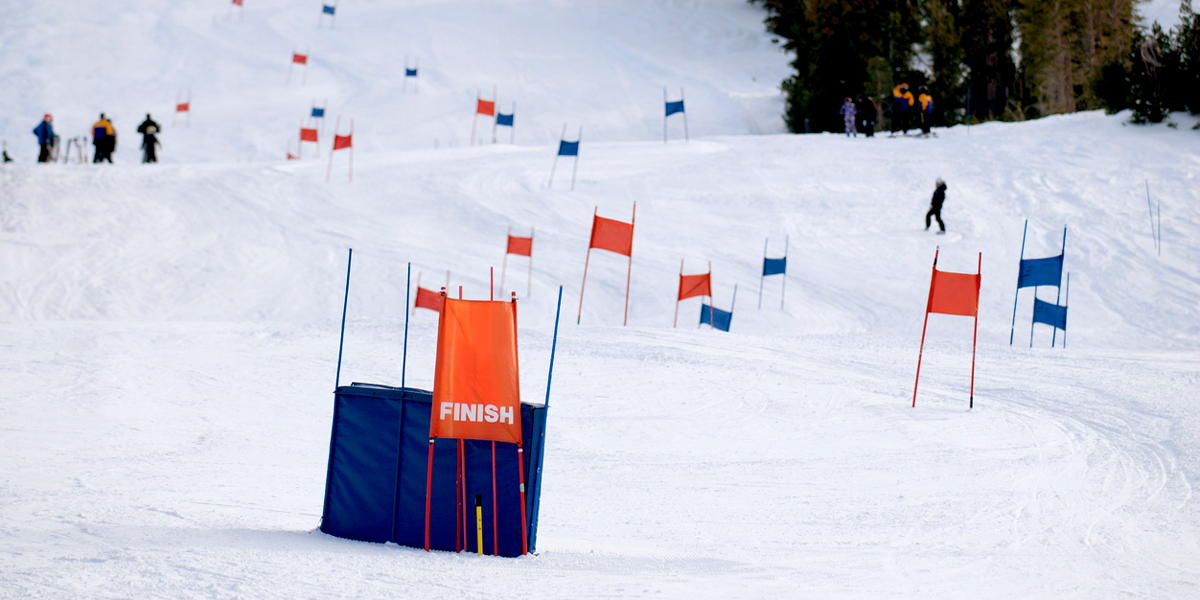A landmark Winter olympics

Posted on Aug 3, 2022 by FEED Staff
The delayed Summer Olympics in Tokyo meant Olympic Broadcasting Services had to scramble to get Beijing up and running. But the successful Winter Games met expectations, with tech milestones including an entirely UHD HDR broadcast
he last time the Olympics were in Beijing was summer 2008 – and in technological terms that’s a long time ago. Apple had only recently launched a fancy mobile phone with a somewhat promising future. The remarkable advancement for those Summer Games was that they were the first entirely in HD.
Those 2008 Games were a chance for China to be seen by the world as a high-tech, highly modernised country. For the 2022 Beijing Winter Olympics 14 years later, China needed no such introduction.
Return to Beijing
“It was almost like being in a different country,” says Sotiris Salamouris, CTO of Olympic Broadcasting Services, who has helped capture and transmit the Olympics since 2001. “China is far more technically advanced now. There have been leaps forward – and you can see it everywhere. The introduction of mobile is extremely high, sometimes higher than other developed nations.”
As a result, the expectations were on another level for this Olympic presentation, and they didn’t disappoint. The Beijing Games were the first Winter Olympics to be entirely shot and presented in UHD HDR – and widely deploy 5G networks for broadcast contribution. It also enabled remote access for affiliates in new, more flexible ways.
These landmarks would have been impressive for any Olympics broadcast, but Salamouris’ team faced unprecedented difficulties. Due to the Covid-enforced postponement of the Tokyo Summer Games until 2021, OBS had to present the world’s largest sports broadcast two times in one year.
“This has never happened before – and it hasn’t been easy. Normally, we have a year and a half between each edition of the Games in order to prepare, but thanks to the postponement, this period was squeezed to just a few months.”
The technological advancement in China enabled this fast turnaround, with partners Alibaba helping to deploy new cloud services, with China Unicom providing network coverage; Alibaba has been the cloud services supplier to the International Olympic Committee and OBS since 2018.
“If we had to deal with problems like infrastructure or readiness, it would have become overwhelming. The fact that we had a really stable technological set-up there – and local employees we could bring on – really helped alleviate the challenges caused by the Covid-19 postponement,” says Salamouris.
“We had to send some of our people to Beijing, while the Tokyo Games were taking place. We were a bit lucky that both cities were in similar time zones. Once we finished Tokyo, we started sending equipment and personnel directly to Beijing.”
The delayed Summer Olympics in Tokyo meant Olympic Broadcasting Services had to scramble to get Beijing up and running. But the successful Winter Games met expectations, with tech milestones including an entirely UHD HDR broadcast
he last time the Olympics were in Beijing was summer 2008 – and in technological terms that’s a long time ago. Apple had only recently launched a fancy mobile phone with a somewhat promising future. The remarkable advancement for those Summer Games was that they were the first entirely in HD.
Those 2008 Games were a chance for China to be seen by the world as a high-tech, highly modernised country. For the 2022 Beijing Winter Olympics 14 years later, China needed no such introduction.
Return to Beijing
“It was almost like being in a different country,” says Sotiris Salamouris, CTO of Olympic Broadcasting Services, who has helped capture and transmit the Olympics since 2001. “China is far more technically advanced now. There have been leaps forward – and you can see it everywhere. The introduction of mobile is extremely high, sometimes higher than other developed nations.”
As a result, the expectations were on another level for this Olympic presentation, and they didn’t disappoint. The Beijing Games were the first Winter Olympics to be entirely shot and presented in UHD HDR – and widely deploy 5G networks for broadcast contribution. It also enabled remote access for affiliates in new, more flexible ways.
These landmarks would have been impressive for any Olympics broadcast, but Salamouris’ team faced unprecedented difficulties. Due to the Covid-enforced postponement of the Tokyo Summer Games until 2021, OBS had to present the world’s largest sports broadcast two times in one year.
“This has never happened before – and it hasn’t been easy. Normally, we have a year and a half between each edition of the Games in order to prepare, but thanks to the postponement, this period was squeezed to just a few months.”
The technological advancement in China enabled this fast turnaround, with partners Alibaba helping to deploy new cloud services, with China Unicom providing network coverage; Alibaba has been the cloud services supplier to the International Olympic Committee and OBS since 2018.
“If we had to deal with problems like infrastructure or readiness, it would have become overwhelming. The fact that we had a really stable technological set-up there – and local employees we could bring on – really helped alleviate the challenges caused by the Covid-19 postponement,” says Salamouris.
“We had to send some of our people to Beijing, while the Tokyo Games were taking place. We were a bit lucky that both cities were in similar time zones. Once we finished Tokyo, we started sending equipment and personnel directly to Beijing.”


Snowballing expectations
OBS could stick to its original, ambitious plans, making this the first completely UHD HDR Winter Games. Four years ago, the Pyeongchang event had 4K cameras in the mix, but 4K plus high dynamic range is now the standard. The Beijing Olympics were also entirely IP-based – a core enabler of the UHD workflows and easier management and distribution of content.
Remote coverage really hit its stride at these Games. For last summer’s extravaganza in Tokyo, broadcasters around the world scrambled to produce coverage fully from their home bases, with very few actually sending teams to Tokyo. A remote trend already underway was forced into the mainstream – and has become cemented for some broadcasters as a preferred mode of coverage. Why transfer your own staff to sit rink-side, when you can comment directly on the content produced by the OBS International Broadcast Centre (IBC) from your own studio, or from another location your expert commentator might be in?
A predictable result of this increase in remote coverage was the boom in virtual sets and graphics, with broadcasters like the BBC continuing to evolve the elaborate virtual experience it has been employing for other sporting events, such as Uefa Euro 2020 and the Tokyo Olympics. The Beijing virtual studio was driven by Vizrt technology, and took the form of a CG ski lodge.
Dual Olympics
One part of the Winter Games set-up that distinguishes it from the Summer is its two hubs, with a split between the enclosed ‘ice venues’, and outdoor ‘ski venues’. The broadcast infrastructure for the Summer Olympics is a hub-and-spoke model, with the IBC at its centre – but for the Winter Games, the IBC was in Beijing, covering the ice venues. The snow venues, featuring most of the skiing, were in the mountains quite far from the IBC in Zhangjiakou, more than 200km from the city.
This snow venue had its own premises, called the ZBC – for Zhangjiakou Broadcast Centre – which was connected to the IBC by multi-redundant fibre connections, provided by China Unicom.
“We were blessed to be able to implement our initial vision, but of course it didn’t happen without sophisticated planning,” says Salamouris. “The Olympics is all highly orchestrated. We had the tools and knowledge, and managed to do it without too many sacrifices.”
Keeping it social
Social platforms have become essential for sports fans – and the business. NBCUniversal partnered with TikTok to promote coverage of the Winter Olympics and Paralympics.
The broadcaster created daily content for multiple handles, including @NBCSports, @NBCOlympics and @PeacockTV, and also produced a three-episode live stream on the platform, hosted by a TikTok creator.
NBCUniversal noted that Olympics content got over 18 billion views on TikTok, so it offered to collaborate directly. Ironically, TikTok isn’t available in China, although it is owned by Chinese company ByteDance.
The Chinese government loosened internet restrictions for Olympic venues and athletes. Stopping them posting with their medals was something they dared not do.
This article first featured in the Spring 2022 issue of FEED.
Broadcast and streaming archives
Snowballing expectations
OBS could stick to its original, ambitious plans, making this the first completely UHD HDR Winter Games. Four years ago, the Pyeongchang event had 4K cameras in the mix, but 4K plus high dynamic range is now the standard. The Beijing Olympics were also entirely IP-based – a core enabler of the UHD workflows and easier management and distribution of content.
Remote coverage really hit its stride at these Games. For last summer’s extravaganza in Tokyo, broadcasters around the world scrambled to produce coverage fully from their home bases, with very few actually sending teams to Tokyo. A remote trend already underway was forced into the mainstream – and has become cemented for some broadcasters as a preferred mode of coverage. Why transfer your own staff to sit rink-side, when you can comment directly on the content produced by the OBS International Broadcast Centre (IBC) from your own studio, or from another location your expert commentator might be in?
A predictable result of this increase in remote coverage was the boom in virtual sets and graphics, with broadcasters like the BBC continuing to evolve the elaborate virtual experience it has been employing for other sporting events, such as Uefa Euro 2020 and the Tokyo Olympics. The Beijing virtual studio was driven by Vizrt technology, and took the form of a CG ski lodge.
Dual Olympics
One part of the Winter Games set-up that distinguishes it from the Summer is its two hubs, with a split between the enclosed ‘ice venues’, and outdoor ‘ski venues’. The broadcast infrastructure for the Summer Olympics is a hub-and-spoke model, with the IBC at its centre – but for the Winter Games, the IBC was in Beijing, covering the ice venues. The snow venues, featuring most of the skiing, were in the mountains quite far from the IBC in Zhangjiakou, more than 200km from the city.
This snow venue had its own premises, called the ZBC – for Zhangjiakou Broadcast Centre – which was connected to the IBC by multi-redundant fibre connections, provided by China Unicom.
“We were blessed to be able to implement our initial vision, but of course it didn’t happen without sophisticated planning,” says Salamouris. “The Olympics is all highly orchestrated. We had the tools and knowledge, and managed to do it without too many sacrifices.”
Keeping it social
Social platforms have become essential for sports fans – and the business. NBCUniversal partnered with TikTok to promote coverage of the Winter Olympics and Paralympics.
The broadcaster created daily content for multiple handles, including @NBCSports, @NBCOlympics and @PeacockTV, and also produced a three-episode live stream on the platform, hosted by a TikTok creator.
NBCUniversal noted that Olympics content got over 18 billion views on TikTok, so it offered to collaborate directly. Ironically, TikTok isn’t available in China, although it is owned by Chinese company ByteDance.
The Chinese government loosened internet restrictions for Olympic venues and athletes. Stopping them posting with their medals was something they dared not do.
This article first featured in the Spring 2022 issue of FEED.
Broadcast and streaming archives



